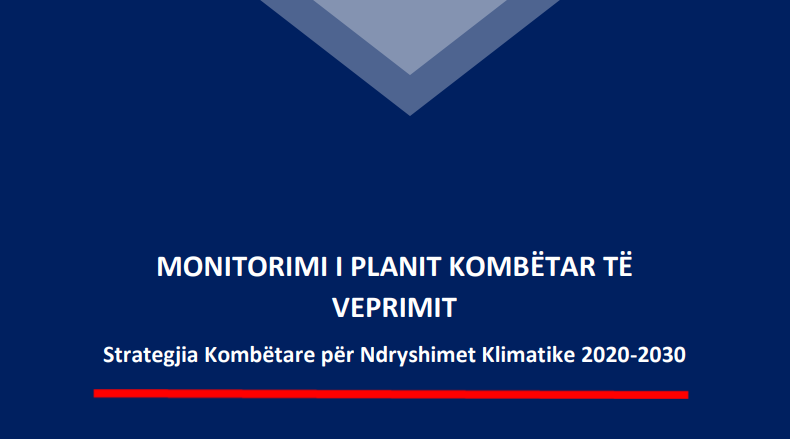Climate crisis trends continue through their downward spiral. Albania, despite contributing to only 0.01% of global emissions, is extremely vulnerable to climate change effects – even more so compared to other European or regional countries because of the lack of appropriate measures to effectively deal with them. Notwithstanding, Prime Minister Edi Rama promised in November 2021 in Glasgow, that Albania would reduce emissions by 20.9% until 2030. Regardless of the challenges to be overcome during this period, addressing climate issues should be prioritized as to avoid an aggravation of the situation until it is too late to mitigate or reverse these effects.
In the framework of monitoring the National Strategy on Climate Change (NS on CC), as approved and implemented by the Government of Albania for the period 2019-2030 and setting targets to be met by 2050; REC Albania, commissioned and supported by the Westminster Foundation for Democracy (WFD), prepared two monitoring reports covering the implementation of this strategy for a two-year period, 2020-2021.
The journey provided us with a myriad of tasks to be accomplished after having thoroughly exhausted the various instruments employed to gather relevant data for devising both documents. These instruments included a blend of desk research tools and face-to-face inquiries aimed at screening all policy frameworks and activities conducted for the period of interest with a multitude of stakeholders, whose role is vital in providing and promoting sustainable climate, energy, and development solutions.
The first report, titled “Monitoring of the Climate Change Strategy in Albania 2020-2030, for 2019-2021” was published in November 2021. It provides insights and analyses related to the availability and accessibility of ‘inputs’ that are pivotal to the successful implementation of the NS on CC in Albania, including funding, legislation, and institutional development, as leading factors for generating an effective response to the challenges identified.
The second report, titled “Climate Change Strategy in Albania 2020-2030: 2019-2021 Action Plan Monitoring” was published in January 2022. It followed the first input-based stage by reviewing priority measures set forth in the National Action Plan (NAP), disaggregated by sector: environment, agriculture, energy, infrastructure, etc.
Findings and recommendations detailed in each report are directed at providing decision-makers with frameworks to facilitate and improve their work, increasing the knowledge of CSOs on the status of implementation progress, as well as encouraging concerted efforts between all stakeholders involved in both consultative and executive functions.





